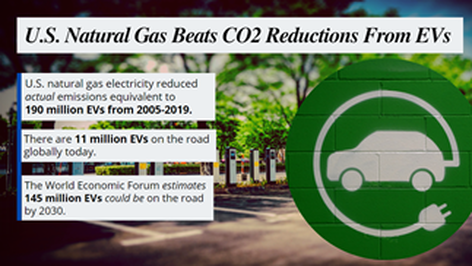|
Earlier this week, Alliance President Kathleen Sgamma testified at a hearing entitled “Ensuring Transparency in Petroleum Markets” before the Senate Committee on Commerce, Science, and Transportation. Kathleen discussed the need for the president to reverse course to enable American producers to increase supply and bring down energy prices. The following are excerpts from responses by Kathleen and Robert McCullough, Principal, McCullough Research, to questions from the senators. Her full written testimony is also available here
Sen. Thune: If you could please speak to how this onerous ESG or environmental, social and governance agenda that's being imposed on energy financing affects the pace at which domestic energy production can come back online. Do you think a heavy-handed ESG approach in the government undercuts voluntary ESG targets? Kathleen: It definitely would undercut voluntary disclosures. I think right now it's so volatile in that marketplace of climate change disclosure that to impose the one-size-fits-all approach that the SEC is looking at now is not going to be helpful because there's so much uncertainty in how to report and what information is the best to report. I'm struck reading through that SEC regulation, the sheer magnitude of what they're requesting and the dampening effect that will have.
Sen. Capito: Are you discounting the administration's projection to the American people that everybody's sitting on these leases and they won't produce and it would be so easy if you just turned a switch on? Kathleen: Well, the blame game is not particularly helpful in trying to say that…the 9,000 leases is, I mean, it's a red herring.
So what can we do to help? Well, the first thing as I've noted is we can replace the Strategic Reserve by forward purchases. That would give more liquidity to the forward market and aid smaller players and getting possible capital. But there's no question in my mind that we need to address that investor fear in some active way. I'm a price-theory economist. I'm also an environmentalist. The two don't always go together. But the fact of the matter is that when we're talking about wildcatters, we're not talking about deep pockets, and so we need to make sure that they can go out and drill. Wildcatters have produced most of our oil in recent years, and they are a powerful force for states from West Virginia all the way to North Dakota and Texas.
Sen. Cruz: The theory that Democrats are postulating is that gasoline prices in 2021 and 2022 that have skyrocketed are because oil companies are manipulating the market and they’re not drilling because they want to hoard. If that’s true, why didn’t they do that in 2017 or 2018 or 2019? Did oil companies not want to make profits then and what’s changed from 2019, the high point, to today?
Kathleen: I think it’s the polices that are discouraging production. And just because I haven’t had the chance to get this in, but the FTC has looked at price gouging and price manipulation 50 different times in recent years, and each time they found no evidence that the oil and gas industry is manipulating or price gouging. Chair Maria Cantwell (D-WA): So Ms. Sgamma you don’t see a need for more transparency in the market? Kathleen: I think with 50 different investigations by the FTC there’s been lots of transparency. Comments are closed.
|
Archives
June 2024
Categories |


 RSS Feed
RSS Feed